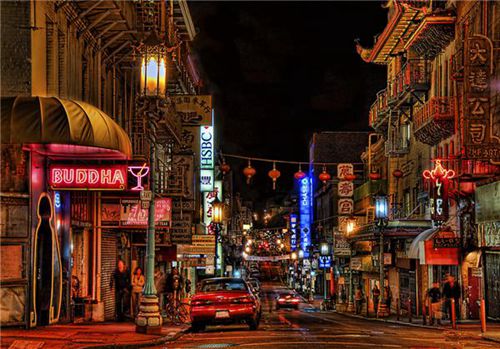Asian markets in USA give Chinese immigrants a taste of home
By Jianyu Hou, Freelancer based in Cleveland, OH., USA
If you are Chinese, just imagine that for half a year you cannot eat dumplings. If you are an American, just for half a year you can only eat food without cheese. Well, many Chinese live in the United States, a country known as a fast food nation.

There is a joke among the Chinese in America: Trust me, when you first come here, your culinary techniques must improve faster than your English ability.
No one has a better understanding of homesickness caused by appetite frustration than the first generation Chinese in America, especially when some people in China had posted Chinese food pictures on their WeChat Moments at around mid-night, US-time.
It is said that the taste buds and stomach are the most sensitive organs for human beings, meaning that the food you eat influences your emotions and your feelings also affects your appetite. Homesickness is mainly caused by language barriers and different lifestyle habits.
Compared to improving English skills, upgrading cooking skills would be easier and faster in the short term to alleviate homesickness. Eating authentic Chinese food is considered one of the most effective treatments for emotional and physical difficulties for acute homesick sufferers.
The top items on Chinese newcomers' shopping lists are for cooking Chinese dishes: all-in-one Chinese cooking knives, woks, rice cookers, and other Chinese food materials not available in regular grocery stores, where only limited Asian goods are on sale.
Most Asian food stores are located in the downtown sections of American cities, not only selling Chinese food, but Korean, Japanese, Vietnamese. Historically, people in neighboring countries have borrowed Chinese dietary habits and have developed their own variations according to local situations.
You can tell the home country of the owner of any Asian food store by its name. In the US, Chinese prefer adding Chinese characters above English names. Japanese use romanized equivalents of hiragana and katakana.
However, no matter where the owners are from, in the US, Asians are seen as a whole community, and an Asian food store can benefit the local Asian community, since our dietary habits closely resemble each other. As long as it's an Asian food store, I just go there and feel connected to the people who go there.
Stepping into an Asian food store, a strong smell of Asian food and seasonings reminds me of the fresh local food markets in China, scattered through most neighborhoods.
There you can meet many "celebrities" from China, such as Lao Gan Ma, Wang Shouyi, Wang Zhihe, Zhang Xiaoquan, even Want-Want Baby. But something like fresh veggies, fungi, meat, frozen dumplings, and soy bean products are mainly from local farms or adjacent states.
Besides food, Asian food stores also provide necessities for Asians' daily life, such as chopsticks, Chinese cooking knives, rice cookers. In some large Asian stores, you can even find Traditional Chinese Medicine. That is good news for TCM believers in the US.
Thanks to America's terrible public transportation, some colleges with many students from Asian countries organize group shopping trips on some weekends, driving them with school shuttles from colleges to Asian food stores.
It's convenient for newcomers without cars to survive in the transition period from one cultural environment to another. Chinese students and scholars are major beneficiaries.
Some Chinese newcomers also join in carpools to go to Asian food stores. During trips, the Chinese can meet people and make friends through sharing experiences and thoughts about the new continent.
Asian food stores provide Chinese with a huge convenience in a foreign country, but most Asian food stores are too far away from residential areas, not accessible by public transportation or within walking distance, which is an obstacle for newcomers without cars.
Many so-called "Chinese restaurants" in the US are so Americanized, dishes are barely recognizable by people raised eating authentic Chinese food. We have a lot to do to improve the life quality for Chinese overseas.
We can promote Chinese food culture and make more people in the rest of the world love Chinese food, so that they would like to put more Chinese food materials on the shelves of American grocery stores, just as what they do for Mexican and Italian food.
(This article was first published on Panview Channel, CCTV.com)
( The opinions expressed here do not necessarily reflect the opinions of Panview or CCTV.com. )
